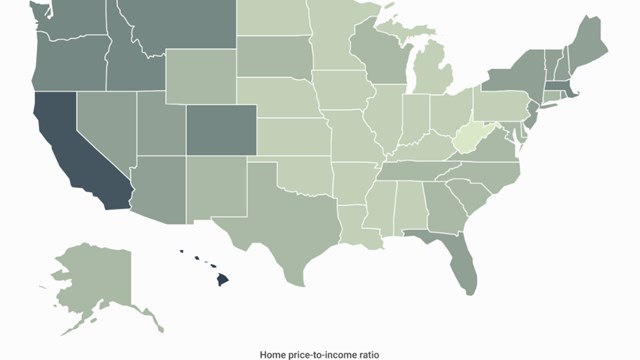You found the perfect co-op apartment, close to work, near good friends and good restaurants. And it’s a great investment. You apply to the board and suddenly find yourself on the receiving end of a rejection letter. What happened?
Within the last decade, rejection rates for co-op applicants have risen drastically. The real estate boom has meant greater freedom for co-op boards in selecting prospective buyers. With so many potential purchasers circulating through the market, boards can afford to be finicky and wait for just the right person to fill the vacancy.
How can you make yourself stand out from the crowd? How can you become irresistible to the most fickle co-op board? While there are never any guarantees, certain things should be done to ensure a board gives you their deepest consideration.
Details, Details
A co-op is an enormous investment, so it’s no surprise the application process should be equally complex. "It’s fairly arduous," says Brian Kenny, vice president of WPG Residential, Inc., a property management company in Manhattan. He says the board "wants to see how long you have been at a job. Are you steady?" Applicants will be asked to produce financial documents such as tax returns, a credit report and W-2 forms.
The application also might ask for references, although Kenny says, "not a lot of attention is paid to references. Most people can get three other people to say they’re great. I don’t think references are that important."
When completed, the application is sent to the co-op management company’s closing department and then on to the co-op board itself. They will review the package and determine if an interview is warranted. If it is, the management company will contact the potential buyer. If it’s a couple, the board will want to meet them both. If it’s parents buying for a grown child, they will want to meet the family. "(The board) will want to meet them all and find out who they’re dealing with," Kenny says.
Just Be Yourself
It turns out what your mother always told you is true–whether on the playground or in front of a co-op board, it’s best just to be yourself. "There are people who come in feeling like they’re going to impress the board," Kenny says. In fact, you might actually be working against yourself. Simple is good. "Put your best foot forward. Be polite and modest. Be yourself," he says.
Alice Smith, a board member of a small co-op in the West Village, agrees, "Don’t try to overwhelm the committee members by name-dropping or bringing in armfuls of publications you’ve been mentioned in." A genuine interest in the building and its people is far more important than who or what you know. "The primary quality we look for is an interest in the building," she says. "Your interest should not be just in obtaining the apartment itself."
Many boards look on the applicant’s current living arrangement as an indicator of what kind of resident they might be. "You don’t want to speak about your current or previous situations in a negative way," Kenny says. Some boards, in fact, have adopted a policy of visiting applicants in their homes or apartments, feeling they can discover much more about the individual, from how they interact with neighbors to their taste in wallpaper. It can save a lot of grief later, avoiding clashes over loud parties or the redecorating of common areas–seemingly trivial matters that can escalate.
The board will also want to know how an apartment is going to be used, especially in the case of self-employed individuals. "Various co-ops have specific uses that are allowed and not allowed," Kenny says. "Some will allow entrepreneurs with a couple of computers, but others won’t allow a therapist because they don’t want the lobby used as a waiting room."
Align Those Decimal Points
While you are sweating out the interview, look on the bright side–you made it this far. And it was probably because your financial statements were all in order and showed consistency.
Close scrutiny of financial records plays an enormous part in the selection process. Unless you have extensive experience in finance or accounting, it pays to consult a professional. "People need to get their fiscal house in order," says Bernie Dorfman, an accountant with Israeloff, Trattner, CPAs in Valley Stream, New York. "They need to make sure their tax returns are filed, their credit cards are current. They need to show that they are able to support the purchase of the property."
While the board peruses your finances, try to ask some questions about the building’s finances as well. "If you’re putting down a big hunk of dough, you should ask questions," Dorfman says. He advises asking to see the co-op’s annual audited financial statements and finding out if a survey of future building needs has been conducted–find out now if new windows are needed and decide if you will be able to pay the assessment fee when repair time comes. Make sure that the revenue from the owners is enough to support the building. Ask to see board minutes. Inquire if there is any litigation pending. Talk to other residents. It doesn’t hurt to ask questions. By doing so, you are showing signs of an involved and conscientious resident.
Remember that stability is foremost in the minds of board members examining potential buyers. They look not just for the ability to put down a substantial down payment and make the purchase, but also to sustain quality ownership throughout the years of residency. For example, small co-ops may keep only modest funds in reserve for repair and restoration, meaning residents must be able to shoulder substantial assessments if a roof or elevator needs repair. "We’re looking for access to immediate funds if required," Smith says. "When something comes up we have to pass large assessments." And residents must be able to pay.
Young people without a track record of financial and employment stability might find the application process even rougher. Twenty years ago, most co-op boards would most likely accept a parents’ guarantee on the contract; not today. "We want resident owners, not Mommy and Daddy buying it for their kids. We want financial responsibility for the person living in the building," Smith says.
Most of all, "boards are looking for people who have a stake in the building, who have a pride of ownership," Kenny says.
Was It Something I Said?
f your interview process is a little rough, just remember the board members are doing what they feel will best protect their investment and home. Perhaps the fit just isn’t right. These days, however, real estate brokers and management companies are trying hard to minimize rejections by doing all they can to match the right buyer with the right co-op. If you get turned down, the key is to keep searching. The perfect home is out there, just waiting to be found.
Ms. Lent is a freelance writer living in Bloomfield Hills, Michigan.






Leave a Comment